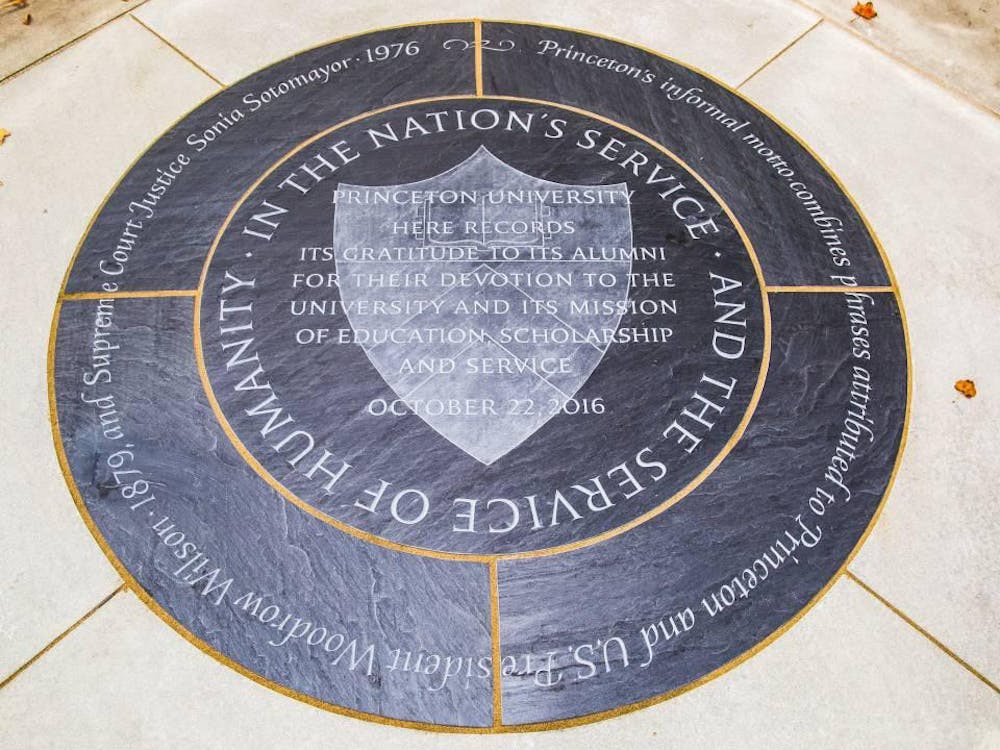What if I told you that the University is tracking your every move? It knows whether or not you’re skipping breakfast, which dorm you visit to see a partner, whether you go back to your own room for the night and, if you do, the exact time you get there.
If students twenty years ago were asked to turn this information over, they surely would have refused. If they found that the University already had that information, they would have protested. Privacy was important, back then.
We aren’t like that anymore. We give away all that information and more without thought. Are you going to the library late at night? Have you stopped working out? The University knows these things, too. But this detailed tracking does not instill fear or even a modicum of concern in the modern student.
In fact, hardly any students still at the University remember a time when the administration did not track our every move. The prox replaced the dorm key in the summer of 2012, just before this year’s senior class arrived.
With the prox came a new power: the University can, and does, collect data every time you use it — whether getting a meal, going to the gym or entering a dorm building. When you prox into your room, the data is immediately streamed over campus Wi-Fi to University databases. Different departments have access to different parts of your data, and multiple people can access all the data on your profile, according to a Daily Princetonian article written around the time of the transition to keyless locks.
The University has no explicit policy about the personal data gathered from prox activity, how long the data is stored or the circumstances under which the data can be accessed. This might give us pause except that it is the status quo. For those of us at the University today, the prox and its extensive data collection is all we have ever known.
But a large portion of students, I suspected, do not know that their personal information is collected. To test my theory, I sent a survey to the Whitman College listserv and gathered 75 responses — 35 from upperclassmen, 40 from underclassmen. Among the entire sample population, 44 percent of students said they did not know their data was collected and stored. Only 16 percent said that the University itself had informed them of the data collection.
The results are even more striking for the Class of 2019. Among freshmen, 85 percent did not know their data was collected and stored, and zero percent said that the University had informed them. If we believe the participants in my survey, the University is collecting and storing real-time location data from its students without their knowledge or consent.
Even if students were informed, however, they could not really consent to being tracked. The University offers no other choice. Underclassmen are required to live in campus dorms and purchase a student meal plan, and these things require prox use. If you do not want your movements to be tracked, you must attend a different University.
Seventy-eight percent of students in the survey want the University to change its data collection policy in some way, including making its policies more explicit. Nevertheless, most students were unconcerned. When asked what the University should do moving forward, only 19 percent of respondents said it should stop tracking data or offer the ability to opt-out of the data collection program. One student wrote in, “Who cares.”
Everyone would have cared twenty years ago. But today, with young people sharing their private data so eagerly on the web, we accept data collection as normal. One student emailed me to say that, while no one had told her about it, she knew the University could track her prox use “because it’s common sense.”

Far from caring about privacy, most students reported that they feel safer knowing that the data can be used to aid criminal investigations. I am more cautious. In my two years here, location tracking probably contributed to only two arrests— that of the alleged Halloween burglarthis past semester and the Forbes bathroom burglar the past year — and both offenses were nonviolent. Whether we are talking about the University or the NSA, the argument that we are safer for handing over large amounts of personal data is not supported by the evidence.
On the other hand, allowing an administration to track us closely may be dangerous in itself. The University does not use the data maliciously now, but we must be wary of the slippery slope. It was not without reason that the United Nations included in its 1984 Universal Declaration of Human Rights that “no one shall be subjected to arbitrary interference with his privacy.” If, when confronted with a violation of our human rights, we do nothing but shrug and ask “who cares,” then we are already on our way to 1984.
Newby Parton is a sophomore from McMinnville, Tenn. He can be reached at newby@princeton.edu.







